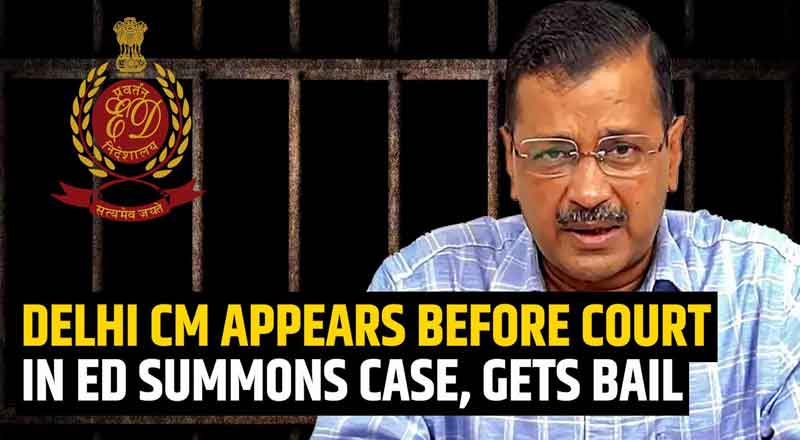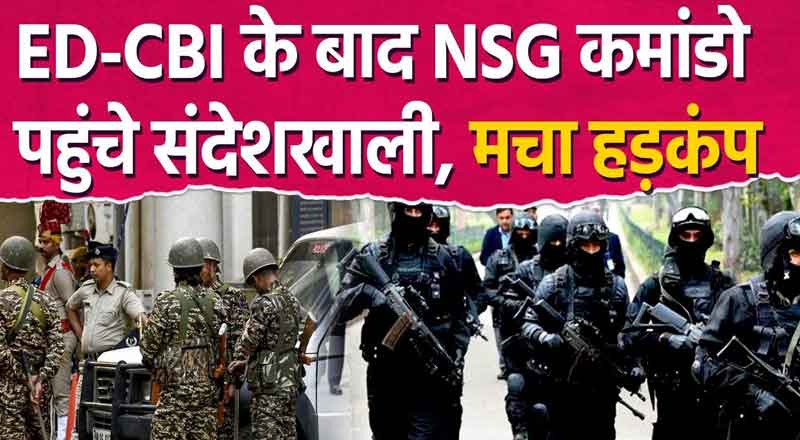- The court has extended bail to CM Arvind Kejriwal against arrest for his non-compliance with summonses issued by the ED in connection with the alleged Delhi excise policy case.
- The case against Kejriwal stems from allegations of violating Section 174 of the IPC which pertains to disobeying lawful orders to be present at a specified place, either personally or through a representative.
- Kejriwal and his legal team have consistently maintained that the summonses were politically motivated and lacked legal merit.
- Kejriwal’s appearance before the court signifies a willingness to engage with the legal process transparently, seeking to address the allegations leveled against him
The Rouse Avenue court in Delhi has extended bail to Chief Minister Arvind Kejriwal against arrest for his non-compliance with summonses issued by the Enforcement Directorate (ED) in connection with the alleged Delhi excise policy case. This decision marks a positive turn in the legal saga surrounding Kejriwal, offering him the opportunity to navigate the judicial process while upholding his rights as a citizen and a public figure.
The case against Kejriwal stems from allegations of violating Section 174 of the Indian Penal Code, which pertains to disobeying lawful orders to be present at a specified place, either personally or through a representative. The ED had repeatedly summoned Kejriwal to provide his statement regarding various aspects of the Delhi excise policy, including its formulation and allegations of bribery.
Kejriwal and his legal team have consistently maintained that the summonses were politically motivated and lacked legal merit. Despite this, the court’s decision to grant bail underscores the recognition of Kejriwal’s cooperation with the legal process while allowing him to participate in proceedings without the encumbrance of custody.
The legal proceedings surrounding Kejriwal have not occurred in a vacuum but against the backdrop of heightened political rhetoric. As a prominent opposition figure, Kejriwal has accused the central government of orchestrating a campaign against him through investigative agencies. Conversely, his detractors emphasize the importance of adherence to legal norms and the rule of law, irrespective of political affiliations.
Kejriwal’s appearance before the court signifies a willingness to engage with the legal process transparently, seeking to address the allegations leveled against him through established legal channels. The granting of bail provides him with the opportunity to present his case and refute the accusations fairly and impartially.
In the face of vehement assertions of innocence by Kejriwal’s supporters, who claim that there is no substantive evidence against him, the case assumes broader significance beyond individual culpability. It serves as a litmus test for the functioning of democratic institutions and the principles of justice and fair trial in a politically charged environment.
Moving forward, attention will remain riveted on the judicial proceedings and their implications for Kejriwal, as well as for the larger political landscape in Delhi and beyond. The extension of bail represents a step forward in the legal process, offering Kejriwal the opportunity to defend himself against the allegations while upholding the fundamental tenets of democracy and the rule of law.
AAP leader Manish Sisodia and Sanjay Singh are in jail over similar charges. The party claims the Centre wants ED to arrest Arvind Kejriwal so that the latter can’t campaign for the Lok Sabha elections.
(With inputs from agencies)





